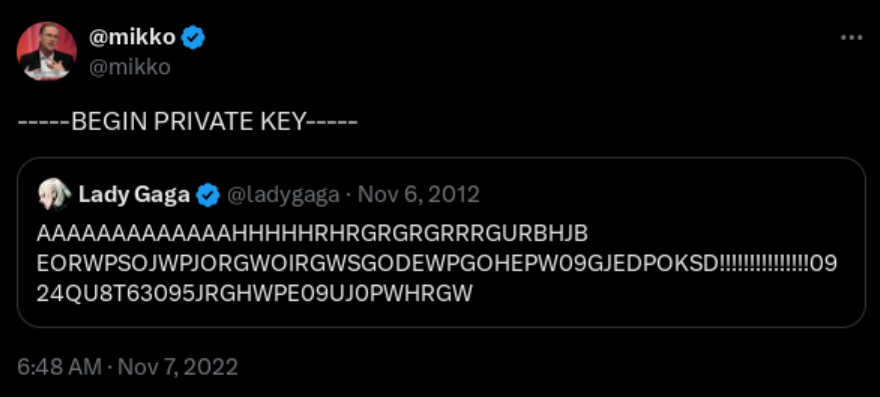this post was submitted on 20 Jul 2024
72 points (97.4% liked)
linuxmemes
20408 readers
961 users here now
I use Arch btw
Sister communities:
- LemmyMemes: Memes
- LemmyShitpost: Anything and everything goes.
- RISA: Star Trek memes and shitposts
Community rules
- Follow the site-wide rules and code of conduct
- Be civil
- Post Linux-related content
- No recent reposts
Please report posts and comments that break these rules!
founded 1 year ago
MODERATORS
you are viewing a single comment's thread
view the rest of the comments
view the rest of the comments

Words are the least secure way to generate a password of a given length because you are limiting your character set to 26, and character N gives you information about the character at position N+1
The most secure way to generate a password is to uniformly pick bytes from the entire character set using a suitable form of entropy
Edit: for the dozens of people still feeling the need to reply to me: RSA keys are fixed length, and you don't need to memorize them. Using a dictionary of words to create your own RSA key is intentionally kneecapping the security of the key.
That's only really true if you're going to be storing the password in a secure vault after randomly generating it; otherwise, it's terrible because 1) nobody will be able to remember it so they'll be writing it down, and 2) it'll be such a pain to type that people will find ways to circumvent it at every possible turn
Pass phrases, even when taken with the idea that it's a limited character set that follows a semi predictable flow, if you look at it in terms of the number of words possible it actually is decently secure, especially if the words used are random and not meaningful to the user. Even limiting yourself to the 1000 most common words in the English language and using 4 words, that's one trillion possible combinations without even accounting for modifying capitalisation, adding a symbol or three, including a short number at the end...
And even with that base set, even if a computer could theoretically try all trillion possibilities quickly, it'll make a ton of noise, get throttled, and likely lock the account out long before it has a chance to try even the tiniest fraction of them
Your way is theoretically more secure, but practically only works for machines or with secure password storage. If it's something a human needs to remember and type themselves, phrases of random words is much more viable and much more likely to be used in a secure fashion.
One small correction - this just isn't how the vast majority of password cracking happens. You'll most likely get throttled before you try 5 password and banned before you get to try 50. And it's extremely traceable what you're trying to do. Most cracking happens after a data breach, where the cracker has unrestricted local access to (hopefully) encrypted and salted password hashes.
People just often re-use their password or even forget to change it after a breach. That's where these leaked passwords get their value if you can decrypt them. So really, this is a non-factor. But the rest stands.
That's fair
It's still a rather large pool to crack through even without adding more than the 1000 most common words, extra digits, minimal character substitution, capitalization tweaks, etc